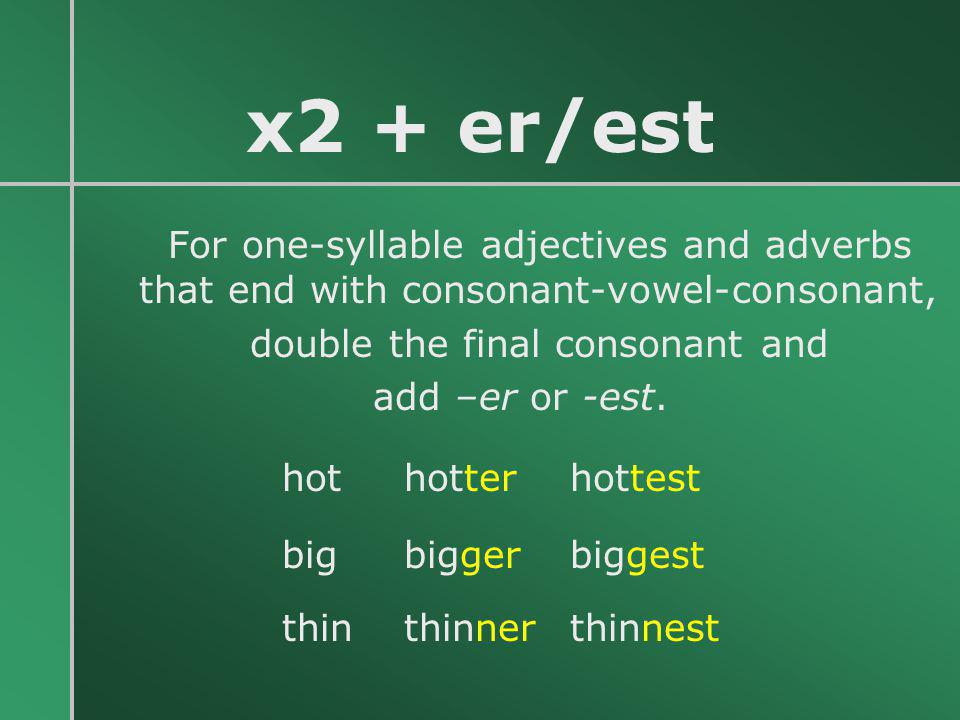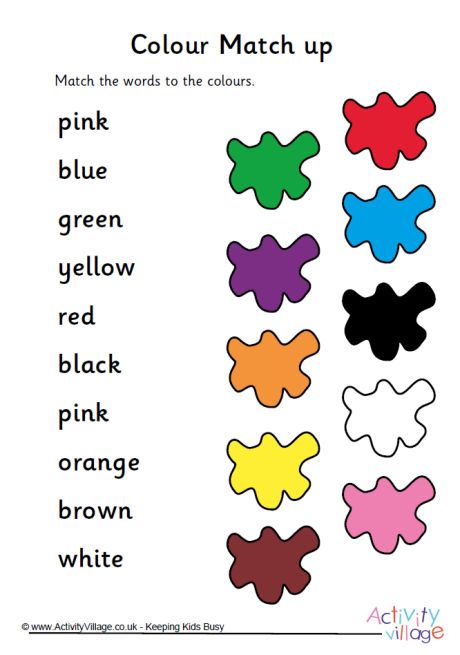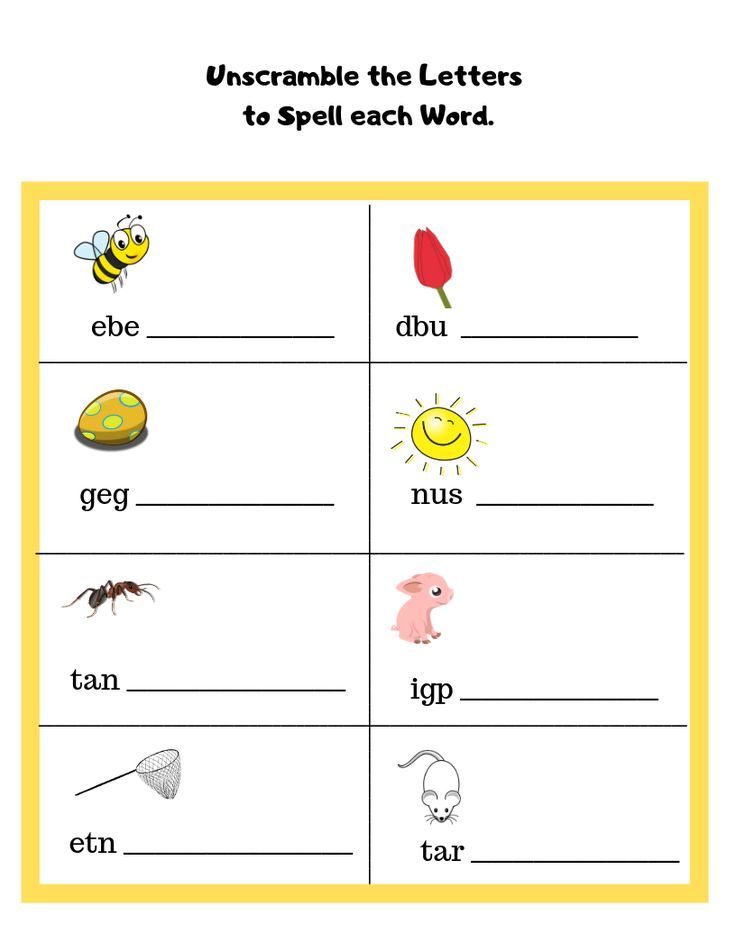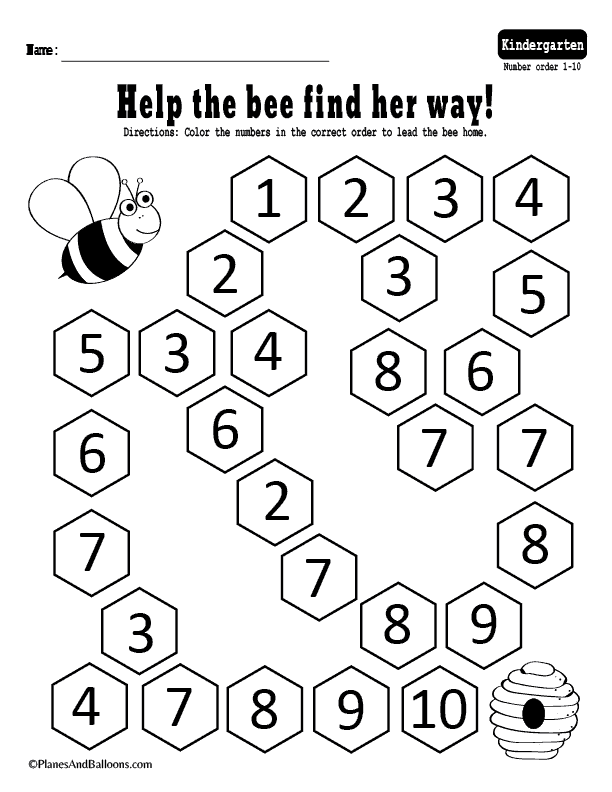Doubling consonants rules
Doubling the final consonant before adding –ed or –ing
Ask the Editor
Question
When do you double the consonant at the end of a verb, before adding –ed or –ing? — Pasam G, Tanzania
Answer
SPELLING RULES FOR VERBS WITH -ING AND -ED ENDINGS
When a verb ends in a consonant, sometimes the consonant is doubled before adding the –ed or –ing ending, like this:
stop --> stopped, stopping
- Lucy stopped the car.
- Why was Lucy stopping the car?
And sometimes the final consonant is not doubled, like this:
shift --> shifted, shifting
- Sandy shifted the gears.
- Sandy was shifting the gears too much.
To know when to double the final consonant, follow the rules below.
RULES
- In a word with 1 syllable, double the final consonant ONLY if the word ends in 1 vowel + 1 consonant.
- In a word with 2 or more syllables, double the final consonant ONLY if the word ends in 1 vowel + 1 consonant AND the final syllable is stressed.
- At the end of a word, don’t count w, x, or y as a consonant.
APPLYING THE RULES
These verbs get a doubled final consonant:
- tip / He tipped the waiter. /He isn't tipping the waiter.
- cram / The students crammed for the test. /The students were cramming for the test.
- regret / Carl regretted the things he had said. /Carl was regretting the things he had said.
These verbs do not get a doubled final consonant:
- vote --> voted, voting (vote ends in a vowel)
- instruct --> instructed, instructing (instruct ends in 2 consonants)
- listen --> listened, listening (listen has 2 syllables and the final syllable is not stressed)
Archive
Select month. ..February 2022January 2022December 2021November 2021October 2021September 2021August 2021July 2021June 2021May 2021April 2021March 2021February 2021January 2021December 2020November 2020October 2020September 2020August 2020July 2020June 2020May 2020April 2020March 2020February 2020January 2020December 2019November 2019October 2019September 2019August 2019May 2019April 2019March 2019February 2019January 2019December 2018November 2018October 2018September 2018August 2018July 2018June 2018May 2018April 2018March 2018February 2018January 2018December 2017November 2017October 2017September 2017August 2017July 2017June 2017May 2017April 2017March 2017February 2017January 2017December 2016November 2016October 2016September 2016August 2016July 2016June 2016May 2016April 2016March 2016February 2016January 2016December 2015November 2015October 2015September 2015August 2015July 2015June 2015May 2015April 2015March 2015February 2015January 2015December 2014November 2014October 2014September 2014August 2014July 2014June 2014May 2014April 2014March 2014February 2014January 2014December 2013November 2013October 2013September 2013August 2013July 2013June 2013May 2013April 2013March 2013February 2013January 2013December 2012November 2012October 2012September 2012August 2012July 2012June 2012May 2012April 2012March 2012February 2012January 2012December 2011November 2011October 2011September 2011August 2011July 2011June 2011May 2011April 2011March 2011February 2011January 2011December 2010November 2010October 2010September 2010August 2010July 2010June 2010May 2010April 2010March 2010February 2010January 2010December 2009November 2009October 2009September 2009August 2009July 2009June 2009May 2009April 2009March 2009February 2009January 2009December 2008November 2008October 2008September 2008
..February 2022January 2022December 2021November 2021October 2021September 2021August 2021July 2021June 2021May 2021April 2021March 2021February 2021January 2021December 2020November 2020October 2020September 2020August 2020July 2020June 2020May 2020April 2020March 2020February 2020January 2020December 2019November 2019October 2019September 2019August 2019May 2019April 2019March 2019February 2019January 2019December 2018November 2018October 2018September 2018August 2018July 2018June 2018May 2018April 2018March 2018February 2018January 2018December 2017November 2017October 2017September 2017August 2017July 2017June 2017May 2017April 2017March 2017February 2017January 2017December 2016November 2016October 2016September 2016August 2016July 2016June 2016May 2016April 2016March 2016February 2016January 2016December 2015November 2015October 2015September 2015August 2015July 2015June 2015May 2015April 2015March 2015February 2015January 2015December 2014November 2014October 2014September 2014August 2014July 2014June 2014May 2014April 2014March 2014February 2014January 2014December 2013November 2013October 2013September 2013August 2013July 2013June 2013May 2013April 2013March 2013February 2013January 2013December 2012November 2012October 2012September 2012August 2012July 2012June 2012May 2012April 2012March 2012February 2012January 2012December 2011November 2011October 2011September 2011August 2011July 2011June 2011May 2011April 2011March 2011February 2011January 2011December 2010November 2010October 2010September 2010August 2010July 2010June 2010May 2010April 2010March 2010February 2010January 2010December 2009November 2009October 2009September 2009August 2009July 2009June 2009May 2009April 2009March 2009February 2009January 2009December 2008November 2008October 2008September 2008
You can read more articles in the archive.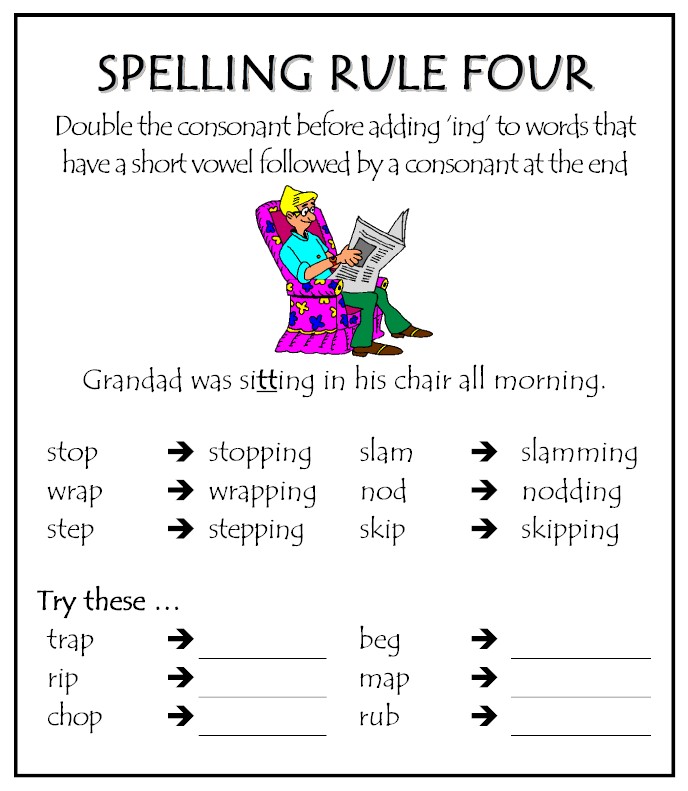
Spelling rules: doubling up
There are so many spelling rules and it can be difficult to remember them all when you are learning English (and even if you do remember the rule, sometimes it doesn’t always apply, for instance the ‘I before E rule’). However, the doubling rule, or the 1-1-1 rule works in every instance.
The spelling rule
The spelling rule is: if the word has 1 syllable (a word with one vowel sound), 1 vowel and it ends in 1 consonant, you double the final consonant before you add ‘ing’, ‘ed’, ‘er’, ‘est’ (also known as a suffixal vowel). You don’t double the consonant if the word ends in ‘tion’ (also known as a suffixal consonant).
So, if the word has:
- 1 syllable
- 1 vowel
- 1 consonant, which follows the vowel
You double up the last consonant, to make a suffixal vowel (running/ runner, jogging, stopping/stopped).
For example: The word ‘run’
- It has 1 syllable
- It has 1 vowel – ‘u’
- And it has 1 consonant that follows the vowel – ‘n’
In this instance, you double the last consonant to make the word ‘running’.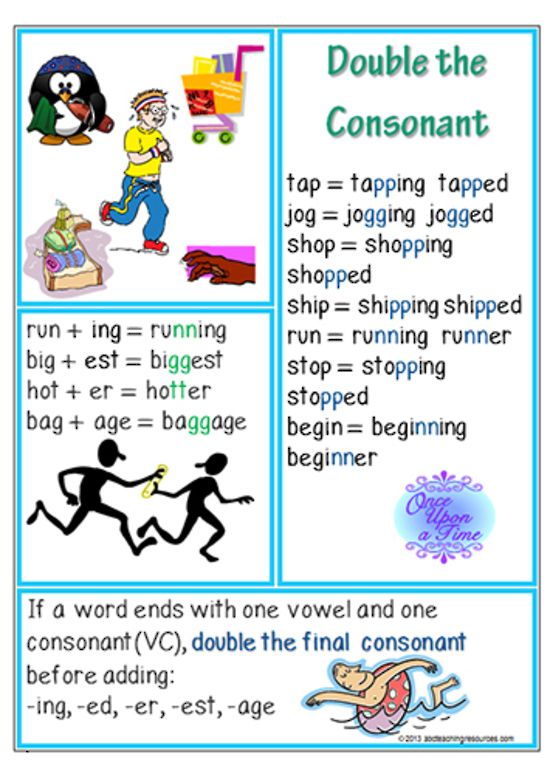
More examples:
- Run = Running
- Stop = Stopping/Stopped
- Big = Bigger
- Quiz = Quizzes
- Fat = Fatter/ Fattest
Words that have more than one consonant after the vowel don’t double, e.g. ‘lift’ has two consonants ‘f’ and ‘t’, so you don’t double the last consonant, instead you just add the suffixal vowel: ‘lifting’.
For words that have a long ‘e’ vowel on the end, for example grade, slide, hate, you drop the ‘e’ before adding ‘ing’ or ‘ed’, without doubling the last consonant. E.g. Grade becomes ‘grading’ or ‘graded’.
Words with more than one syllable
The doubling rule can also be used for words with more than one syllable, however these words must end in a single consonant and the primary stress must be on the final syllable.
So, if the word has:
- More than 1 syllable
- Ends in 1 consonant
- The final consonant follows a vowel, and that vowel is bearing primary stress
You double up the last consonant, to make a suffixal vowel.